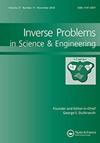基于多项式混沌展开的加速贝叶斯推理油藏历史匹配
IF 1.1
4区 工程技术
Q3 ENGINEERING, MULTIDISCIPLINARY
引用次数: 2
摘要
通过油藏模拟,对某油藏的产油量进行了预测。油藏模拟中的模型参数是不确定的,其数值是通过模拟预测与生产历史相匹配来估计的。贝叶斯推理(BI)提供了一种方便的方法来估计数学模型的参数,从参数值的可能分布开始,并知道生产历史。BI技术的历史匹配需要马尔可夫链蒙特卡罗(MCMC)采样方法,这涉及到大量的油藏模拟。这限制了BI在油藏工程中历史匹配的应用,因为每次油藏模拟的计算成本都很高。为了克服这一限制,我们使用多项式混沌展开式(pce)来构建模型预测的代理模型,该模型表示由于模型参数的不确定性而导致的生产预测的不确定性。作为该方法的应用,我们提出了基于黑油模型的历史拟合模拟,以估计孔隙度、渗透率和相对渗透率曲线指数等模型参数。对这些历史拟合问题的求解表明,与MCMC方法相比,基于pce的方法能够准确估计模型参数,并且油藏模拟次数减少了两个数量级。本文章由计算机程序翻译,如有差异,请以英文原文为准。
Accelerated Bayesian inference-based history matching of petroleum reservoirs using polynomial chaos expansions
The forecast for oil production from an oil reservoir is made with the aid of reservoir simulations. The model parameters in reservoir simulations are uncertain whose values are estimated by matching the simulation predictions with production history. Bayesian inference (BI) provides a convenient way of estimating parameters of a mathematical model, starting from a probable distribution of parameter values and knowing the production history. BI techniques for history matching require Markov chain Monte Carlo (MCMC) sampling methods, which involve large number of reservoir simulations. This limits the application of BI for history matching in petroleum reservoir engineering, where each reservoir simulation can be computationally expensive. To overcome this limitation, we use polynomial chaos expansions (PCEs), which represent the uncertainty in production forecasts due to the uncertainty in model parameters, to construct proxy models for model predictions. As an application of the method, we present history matching in simulations based on the black-oil model to estimate model parameters such as porosity, permeability, and exponents of the relative permeability curves. Solutions to these history matching problems show that the PCE-based method enables accurate estimation of model parameters with two orders of magnitude less number of reservoir simulations compared with MCMC method.
求助全文
通过发布文献求助,成功后即可免费获取论文全文。
去求助
来源期刊

Inverse Problems in Science and Engineering
工程技术-工程:综合
自引率
0.00%
发文量
0
审稿时长
6 months
期刊介绍:
Inverse Problems in Science and Engineering provides an international forum for the discussion of conceptual ideas and methods for the practical solution of applied inverse problems. The Journal aims to address the needs of practising engineers, mathematicians and researchers and to serve as a focal point for the quick communication of ideas. Papers must provide several non-trivial examples of practical applications. Multidisciplinary applied papers are particularly welcome.
Topics include:
-Shape design: determination of shape, size and location of domains (shape identification or optimization in acoustics, aerodynamics, electromagnets, etc; detection of voids and cracks).
-Material properties: determination of physical properties of media.
-Boundary values/initial values: identification of the proper boundary conditions and/or initial conditions (tomographic problems involving X-rays, ultrasonics, optics, thermal sources etc; determination of thermal, stress/strain, electromagnetic, fluid flow etc. boundary conditions on inaccessible boundaries; determination of initial chemical composition, etc.).
-Forces and sources: determination of the unknown external forces or inputs acting on a domain (structural dynamic modification and reconstruction) and internal concentrated and distributed sources/sinks (sources of heat, noise, electromagnetic radiation, etc.).
-Governing equations: inference of analytic forms of partial and/or integral equations governing the variation of measured field quantities.
 求助内容:
求助内容: 应助结果提醒方式:
应助结果提醒方式:


